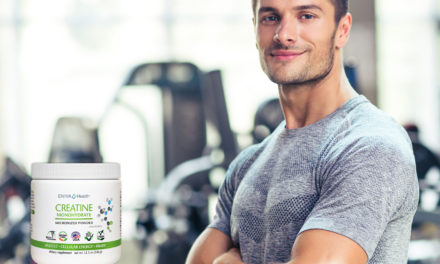Vision is one of the most precious of our 5 senses. It helps create a fullness in our life that is very difficult to replace. Unfortunately, significant vision impairment or vision loss is all too common as people age—especially in light of health challenges, such as cataracts, diabetic retinopathy or macular degeneration.
I often tell people interested in eye health that specific lifestyle and nutrition interventions can help keep our eyes at their best. There is significant research supporting the benefits of certain nutrients for the eyes, especially the macula (the part of the eye responsible for fine vision and affected in Age-Related Macular Degeneration).
When it comes to lifestyle intervention, one of the top things I (and many doctors) recommend for eye health is frequent use of sunglasses. In this article, I would like to briefly focus on the details of this topic.
Why Are Sunglasses Important to Your Eye Health?
Sunglasses bock the ultraviolet UV-A and UV-B rays that can damage your macula and other parts of your eye. But, not all sunglasses are created equal.
Here is what you need to know about sunglasses for promoting eye health:
- If you use polarized lenses, they may offer no UV protection. Check with your eye doctor or manufacturer on your specific polarized lens type and if it blocks UV rays!
- Wear sunglasses often when outside, even if weather conditions are cloudy.
- Double check your sunglasses are UV-A and UV-B rated to help block 99%+ of these rays.
- “Wrap Around” style sunglasses can provide added protection from side light entry. If you have a clinical condition, consider these for max sunlight protection.
- Wear sunglasses year round, not just during the summer months. Reflected sunlight carries with it harmful UV rays. The reflection in the winter can especially be quite severe.
- If playing sports and wearing sunglasses, consider investing in “shatter proof” lenses that will not splinter if broken.
What Role Does Nutrition Play in Eye Health?
When it comes to nutrition, I recommend nutrients based on national studies that have demonstrated benefit for the eyes:
• Vitamin A/Beta Carotene
• Lutein
• Zeaxanthin
• Zinc
• Copper
• Vitamin E
• Omega-3s
• Selenium
• Thiamin
• Vitamin C
Additional nutrients may also have benefit, but these are the top contenders. If you smoke, you should avoid beta-carotene containing supplements (as well as quit smoking!). It is important to note that general daily supplements usually do not contain the higher levels of these nutrients, even if they are listed as ingredients. Higher levels are needed to impact the heath of the eye.
Trust Eniva Health for Your Eye Health Needs
At Eniva, we offer a wonderful liquid formula called Eye Health+ that contains these nutrients at higher levels, and due to its liquid design, it also promotes easy absorption. The liquid factor is a key consideration, especially for older adults.
Below are my top Eniva product recommendations for the health of your eyes:
Share these products with your eye doctor and remember to always get your annual eye exam and wear eye protection during household or yard projects. Please, don’t smoke.
Vision is precious. The good news is we can be proactive in both what we do and what we put in our bodies to promote the health of our eyes.
*This statement has not been evaluated by the Food and Drug Administration. This product is not intended to diagnose, treat, cure, or prevent any disease. Any research referred to in this article is not meant to be interpreted as research results involving specific Eniva products.
At Eniva, we believe each human body was designed to be healthy. It was designed to be energetic, lean, agile, and resilient towards healing. You were created to live an abundant, healthy and vibrant life. Eniva is proud to create and manufacture pure liquid nutraceuticals with no artificial preservatives. Our liquid supplements are natural solutions to help you feel and look your best.





